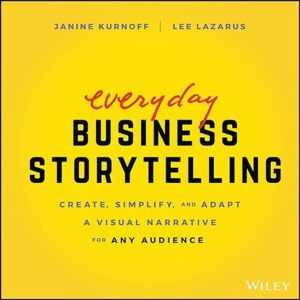Mastering the Art of Storytelling in Job Interviews
Introduction:
In the competitive landscape of job hunting, the ability to compellingly narrate your professional journey can set you apart. Storytelling in interviews is not just about engaging your interviewer; it’s about strategically presenting your experiences, achievements, and lessons learned in a way that resonates with the job role and the company’s culture. This blog post explores the power of storytelling in interviews and provides top tips to harness this skill effectively.
Storytelling is a powerful tool in interviews as it allows you to showcase your skills, experiences, and personality in a memorable and impactful way. A well-told story can illustrate your ability to overcome hurdles, assess risks, collaborate with teams, and stay engaged with your work. It transforms your responses from mere information to compelling narratives that interviewers are likelier to remember and appreciate.
The Power of Storytelling:
Top Tips for Effective Storytelling in Interviews
1. Structure Your Stories:
Use the STAR (Situation, Task, Action, Result) or SHARE (Situation, Hindrances, Actions, Results, Evaluate) method to structure your stories. Begin with setting the scene: “The situation I faced was…”. Then, move on to your task or role: “My objective was…”. Next, describe your action: “The three steps I took were…”. Finally, conclude with the outcome: “The outcome was…”. This framework ensures that your narrative is coherent and complete.
2. Be Relevant:
Tailor your stories to the job you’re applying for. Highlight experiences and skills that are directly relevant to the position. If you’re interviewing for a project management role, share stories that showcase your leadership, organizational skills, and ability to meet deadlines (or any key requirements included in the job description)
3. Showcase Your Personal Growth:
Employers are not just looking for skills; they’re looking for people who can learn and grow. Share stories highlighting how you’ve learned from past experiences and applied those lessons to new situations.
4.Keep It Concise:
While details are necessary, avoid rambling. Practice telling your stories in a way that’s engaging and to the point. A concise, well-told story is more impactful than a lengthy, unfocused narrative. Use signposts to guide your listener through the narrative, such as “The final step was…” or “To summarize the impact…”.
5.Prepare for Common Themes:
Interviewers often look for stories demonstrating specific competencies like teamwork, problem-solving, and adaptability. Prepare stories in advance that showcase these qualities. For example, narrate a time when you led a team through a complex project or adapted to a sudden change in project scope.
6.Engage Your Listener:
Use descriptive language and express emotions where appropriate to make your stories more engaging. This helps the interviewer visualize your experience and keeps them engaged in your narrative. Signposts like “The challenge here was…” or “What I learned from this was…” can help emphasize key points in your story.
7. Incorporating Interviewer’s Perspective:
Remember, interviewers are looking for candidates who can perform the job, fit into the company culture, and contribute to the team. They are keen on understanding your ability to explain your purpose, overcome hurdles, assess risks, collaborate effectively, and keep the listener engaged. Make sure your stories reflect these aspects.
Conclusion:
Storytelling in interviews is a powerful technique that, when used effectively, can significantly enhance your chances of making a lasting impression. It allows you to present your experiences and skills compellingly and memorable. By following these tips and preparing your stories in advance, you’ll be able to articulate your professional journey in a way that resonates with interviewers and sets you apart from other candidates.
Remember, your stories are not just narratives but testaments to your professional journey and the unique value you bring. So, embrace the power of storytelling and let your professional tales pave the way to your next career milestone.
Practice storytelling in a Mock Interview.
Contact me for Mock Interview Coaching – Start Practicing your Storytelling skills today.
Further reading
Everyday storytelling – get yours at Amazon

